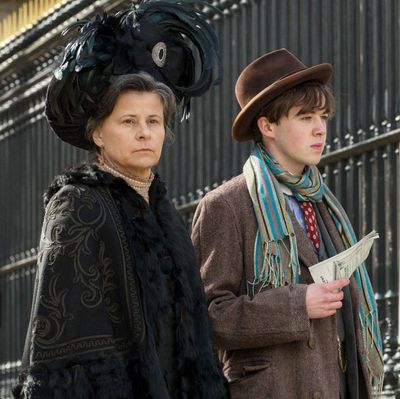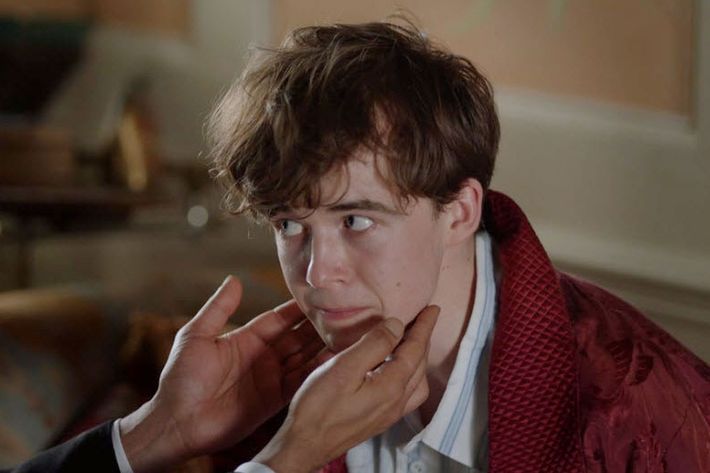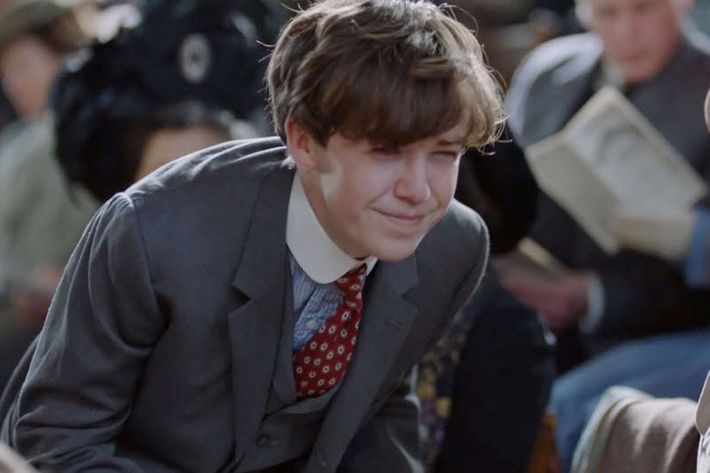
Much of the press campaign around the TV adaptation of Howards End has stressed that itÔÇÖs not a regular period drama, but a cool, modern one. ItÔÇÖs written by Kenneth Lonergan, it introduces new ideas about race and class to the story, and itÔÇÖs performed with modern rhythms with a cast led by Hayley Atwell. But halfway through the four-part miniseries, itÔÇÖs time talk about one of the showÔÇÖs unsung strengths: Alex LawtherÔÇÖs scene-stealing turn as Tibby, the Schlegel sistersÔÇÖ useless younger brother.
E.M. ForsterÔÇÖs novel, for those who arenÔÇÖt familiar, centers on the two Schlegel sisters, who live comfortably (but not exceedingly well) off of their parentsÔÇÖ money in Edwardian England. TheyÔÇÖre energetic intellectual types who like to debate things like womenÔÇÖs suffrage and who get tangled up with the wealthier, more conservative Wilcox family. They also live with their brother Tibby, an insufferable hypochronic whoÔÇÖs supposed to be going to Oxford but spends most of his time moping around their place. In the hands of Lawther, who was last seen moping in The End of the F***ing World, Tibby becomes one of the showÔÇÖs most reliable punchlines.
In large part, this is because Lawther punctures the expectations of what youÔÇÖd see in a period drama. He spends most of TibbyÔÇÖs scenes drinking tea, eating scones, or asking for one of those two things ÔÇô period enough, sure ÔÇô while also reclining on furniture in the limpid, modern boredom of a contemporary teenager. LawtherÔÇÖs performance underlines the way in which being a man in a certain social class not only encourages someone to be a total brat, but also get away with it. When his sisters ask if heÔÇÖs ever going back to Oxford, he shrugs and says he might not bother. He has money anyway.

In the Merchant Ivory film adaptation, Tibby was more of a tossed-off side character, but here Lawther finds all sorts of little obsessions and petty resentments in the text, which hew close to ForsterÔÇÖs dry wit. His Tibby is generally uninterested in his sisterÔÇÖs business unless it directly affects his well-being and quietude (heÔÇÖs extremely rude to their friend Leonard Bast), and more interested in playing his music, studying his fossils, and ÔÇô in one hilarious bit in a later episode ÔÇô doing his chest exercises. ItÔÇÖs a performance that feels immediately recognizable in the present, while still grounded in the particulars of its historical moment. ItÔÇÖs an argument for the kind of acting and direction that make a story like Howards End feel alive, which is to say that it reflect the ways in which human personalities are constant, and yet play out against specific circumstance ÔÇô which is to say tht every spoiled brat ends up being spoiled and a brat in a specific way. (To be fair, Tibby remains very much loved by his sisters, and probably most viewers, as he is pretty adorable.)
In conclusion, I leave you with the face Lawther makes in the first episode, after heÔÇÖs forced to stand up in the middle of a music concert because his sister accidentally stole a manÔÇÖs umbrella. ItÔÇÖs the face of a manboy who has rarely done anything for anyone else in his life and doesnÔÇÖt particularly want to begin now.



